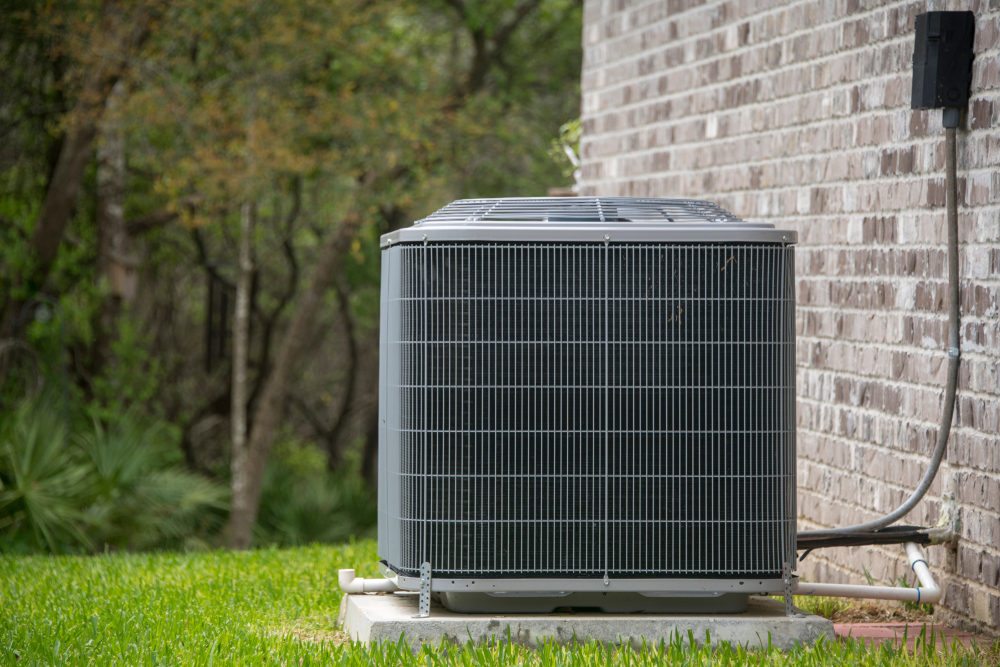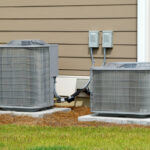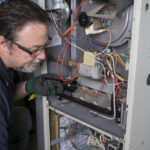Now that you are a homeowner and not a renter, it is up to you to take care of all the utilities and appliances in your home, such as the heating and cooling equipment. If adjusting the thermostat is the only interaction you have ever experienced with an air conditioner or furnace, you have much to learn. Try the following HVAC system basics for first-time homeowners.

I. Know the Various Elements of Your HVAC System
HVAC is an acronym for heating, ventilation, and air conditioning. Unless you live in a perfect climate, your new home likely has such a system to help you stay cool during summer and warm during winter. Here are the key parts of an HVAC system:
- Radiators or hot water distribution systems like boilers.
- Duct work attached to return and supply registers when it comes to air-forced systems such as heat pumps, ACs, and furnaces.
- Thermostat for indoor climate control.
- Indoor air quality solutions, like a whole-house humidifier, air filter, energy-recovery ventilator or air purifier.
- Comfort equipment, like a geothermal heat pump, furnace, air-source heat pump, air conditioner, or ductless mini-split, to name some of the options.
II. Appreciate the Importance of Preventive Maintenance
Back when you were a renter, your landlord most likely was responsible for HVAC maintenance tasks such as air filter replacement. They also may or may not have been the one paying for thorough heating and cooling inspections.
Now that this is your responsibility, you can make preventive maintenance a top priority. You should first prioritize the following DIY HVAC maintenance tasks:
- Keep all air registers open to maintain proper system balance.
- Hose down the outdoor unit gently and pare back vegetation for better airflow.
- Swap out the air filter every 30 to 90 days.
You should then request annual maintenance for each HVAC unit. Only a qualified professional can execute in-depth tasks such as cleaning the furnace burners, identifying air leaks in the ductwork, and recharging the AC refrigerant.
If you call a professional to inspect your HVAC system once a year, you can expect the following perks:
- Extended system lifespan
- Superior home comfort
- Lower repair bills
- Fewer breakdowns
- Energy savings
- Peace of mind.
III. Watch Out for Signs of Trouble
Repairing and replacing the HVAC system is the responsibility of the homeowner. Watch out for the following clues that it’s time to get in touch with a HVAC specialist:
- Old Age: HVAC systems will eventually wear out just like all other mechanical systems. A furnace or burner has a standard lifespan of 15 years while heat pumps and air conditioners can live for around 10 years.
- Reduced Energy Efficiency: Do you find your electricity bills increasing unexpectedly? If so, this could mean that your HVAC system is not functioning properly.
- Comfort or Air Quality Trouble: Low or high humidity, inconsistent temperatures, mold-like smells, and stuffy rooms are often linked to faulty HVAC equipment.
- Loud Noise: Never dismiss a clanking, rattling, whining, or banging sound. It could be a cry of help from your home’s AC or furnace.
To avoid having troubles with your system, read our post on AC efficiency.
IV. Learn More About the Process of Replacing Your HVAC System
If your defective AC or furnace cannot be fixed, you will have to replace it with the assistance of an HVAC contractor. Here is how it works:
- Describe the problem with your system to the technician and let them investigate it more in-depth.
- The technician will then identify the issue and possibly suggest the best solution. A repair might be possible, but a replacement can be more cost-effective based on the age and condition of the unit.
- If you choose, you can secure numerous estimates and opinions from available contractors.
- If you decide to work with us, one of our residential sales consultants will determine what HVAC system, fuel type, brand, and efficiency rating is suitable for you.
- The technician will then provide an estimate in writing detailing the work needed, the equipment to be installed, and the total price. Information about financing options, service plans, and warranty coverage will also be provided.
- Schedule the installation once you decide what system you want. The contractor will handle everything, including safe disposal of the old equipment.
- The sales consultant can walk through the new system with you, describing how it should be used, answering all your questions, and providing all the relevant documentation.
If you have any concerns about the HVAC system fundamentals discussed here, don’t hesitate to contact us. We have made customer education a top priority so that you can make an informed decision about your HVAC system.
Our team is proficient in a wide range of HVAC services, so reach out to us for everything from AC repair to furnace maintenance, to heat pump installation. For more information or ask for an estimate, contact us today.







